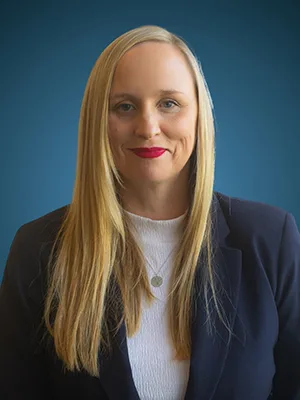Dr Storm Patel, Commercial Director at TASC – a carbon finance and project development company uniquely positioned to identify emerging opportunities in the energy market – reflects on how a seamless payment ecosystem could unlock Africa’s gaming economy.
AFRICA’S CARBON MOMENT IS NOW
The European Union’s (EU) July decision to consider reintroducing international carbon credits to meet its 2040 climate targets marks a major shift and a huge opportunity for Africa.
After years of scepticism towards offsets, Europe now recognises that net zero demands global cooperation, and Africa’s vast potential for nature-based and technological solutions will be essential.
At the same time, the UK is signalling change. The UK Emissions Trading Scheme (UK ETS) authority plans to integrate greenhouse gas removals into its trading scheme, with legislation due by 2028 and operations from 2029.
Whilst the initial focus is domestic, this creates scope for future cross-border offsets, potentially opening the door for African projects to support UK compliance.
But there is a caveat. For Africa to become a meaningful supplier of high-quality credits to European and UK buyers, governments must act decisively now. The window to establish pragmatic Article 6 frameworks is narrowing, and competition is heating up.
THE CAPITAL CONNECTION
Having worked across four African countries developing both nature-based and device-based carbon projects, it’s clear that early alignment with Article 6 standards is critical for securing investment.
Investors are sitting on significant capital, waiting to deploy it into African projects, but only if they can trust the regulatory framework. Above all, investors need a fair, predictable, and stable regulatory environment.
A central concern is how governments structure fees and the share of proceeds. If accreditation charges are high and governments claim 50 percent of credits or revenues, projects become unviable. African governments that offer reasonable, transparent fee structures will attract the lion’s share of capital.
From experience, fixed fees per credit work far better than percentage-based models. They are predictable, easier to model in financial projections, and give investors the clarity they need for long-term commitments.

LEARNING FROM THE GROUND UP
One of the clearest lessons from our work at TASC is that success under Article 6 will depend less on big policy declarations and more on how governments handle the small print, such as authorisation vintages.
The Article 6 rulebook allows countries to authorise credits back to 2021, yet some governments are hesitant to backdate, preferring only forward-looking approvals.
This seemingly small detail has major commercial implications. It risks cutting off valuable earlier vintages that are particularly important under schemes like the Carbon Offsetting and Reduction Scheme for International Aviation (CORSIA).
Buyers want access to the full pool of credits, not artificially restricted timeframes.
THE EXPEDIENCY AND CONSISTENCY IMPERATIVE
African governments must also prioritise speed. Developers are already gravitating towards countries with faster, clearer approval processes. If one country takes 18 months and five layers of review whilst another delivers in six months, capital will flow accordingly.
Consistency within governments matters too. Any momentum gained is at risk of stalling if trained officials driving Article 6 work are moved elsewhere, something I have witnessed first-hand. In these early years, continuity of expertise is vital. Governments that build and retain institutional knowledge will reap long-term benefits.
BUILDING BUYER CONFIDENCE
For European and UK buyers who increasingly rely on international credits, confidence comes down to proof, not promises. When a credit is ‘correspondingly adjusted’, that claim must rest on clear documentation.
Buyers are asking tough questions: Is the adjustment labelled on the registry? Is the project listed in the host country’s Biennial Transparency Report? Has the adjustment been reflected in the national greenhouse gas inventory? Most importantly, is there a legally binding non-revocation clause?
Without firm answers, buyers wonder whether they need insurance to cover the risk that adjustments never materialise or are revoked later. This uncertainty kills deals and deters investment.
The solution is not perfectionism; it is pragmatism. African governments should resist designing Article 6 systems so complex that they never get off the ground. High-integrity markets do not require byzantine bureaucracy.
The most successful frameworks share common traits: clear, fixed fees; streamlined but robust approval processes; consistent application of rules; and transparent, accessible documentation. They prioritise getting quality projects operational quickly rather than designing theoretical perfection that deters investment.
PREPARING FOR A SUCCESSFUL FUTURE
Africa has natural advantages that position it well for this renewed focus on international credits: abundant opportunities for nature-based solutions, growing capacity for technological interventions, and increasingly sophisticated domestic expertise.
Our continent can lead in providing the high-quality, transparently governed credits that international buyers demand. However, these advantages only matter if governments create enabling conditions for investment.
The EU’s July announcement, as well as CORSIA’s Phase 1 compliance deadline approaching at the end of 2027, creates urgency as other regions position themselves to capture international carbon finance. Africa’s window to establish itself as the preferred partner is open, but it will not remain so indefinitely.
The choice is clear. Build pragmatic, investor-friendly Article 6 systems now, or watch capital flow elsewhere. For those ready to act decisively, the opportunity to lead the global carbon market has never been greater. The question is not whether Africa can compete, but whether our governments will create the conditions that allow us to win.


























